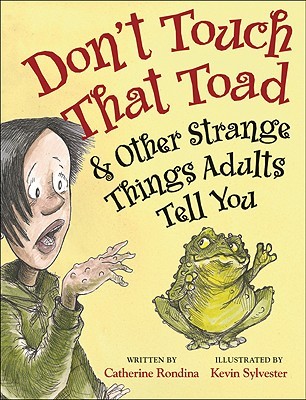True or false: “Eating too much sugar will make you hyper.” How about, “If you go outside with wet hair, you’ll catch a cold.” Or, “A mother bird will reject her babies if they have been touched by humans.” Each of these “facts” that we’ve all heard before are actually false, and the real story behind each one is clearly told here in this intriguing and unique book. Poking mild fun at grown-ups throughout, author Catherine Rondina covers a range of warnings, advice and truisms children will be familiar with, and bases all of her judgments on hard science and research. In order for kids to be able to test themselves without peeking, each “fact” is described on the right-facing page, and a page turn reveals the true or false verdict, along with a full explanation. Humorous black-and-white line drawings by Kevin Sylvester liven up the text. The children who love these kinds of juicy compendiums of information may choose to read this one straight through. Teachers will want to keep it handy on a nearby shelf to refer to in many types of science lessons. It also works for exploring the importance of critical thinking and research in order to understand the difference between what seems true and what is true. The “Parentisms: An Overview” at the back of the book offers a list of favorite parental expressions, which could be used for language arts writing assignments or other creative expressions.
“In her engaging new book, Toronto writer Catherine Rondina sorts out the sense from the nonsense in parental admonitions… As in her Deal With It series, Rondina tackles her subject with matter-of-fact language that speaks directly and without pretension to her younger audience.” (Quill & Quire)
“The writing style is quirky and upbeat, and the lighthearted tone is enhanced by humorous animated line drawings. For kids who are curious about language oddities, superstitions and folklore, this would be a fun book to give as a gift. It will prove useful for kids who want to win those arguments with their friends about these strange sayings, too.” (Manitoba Library Association)
